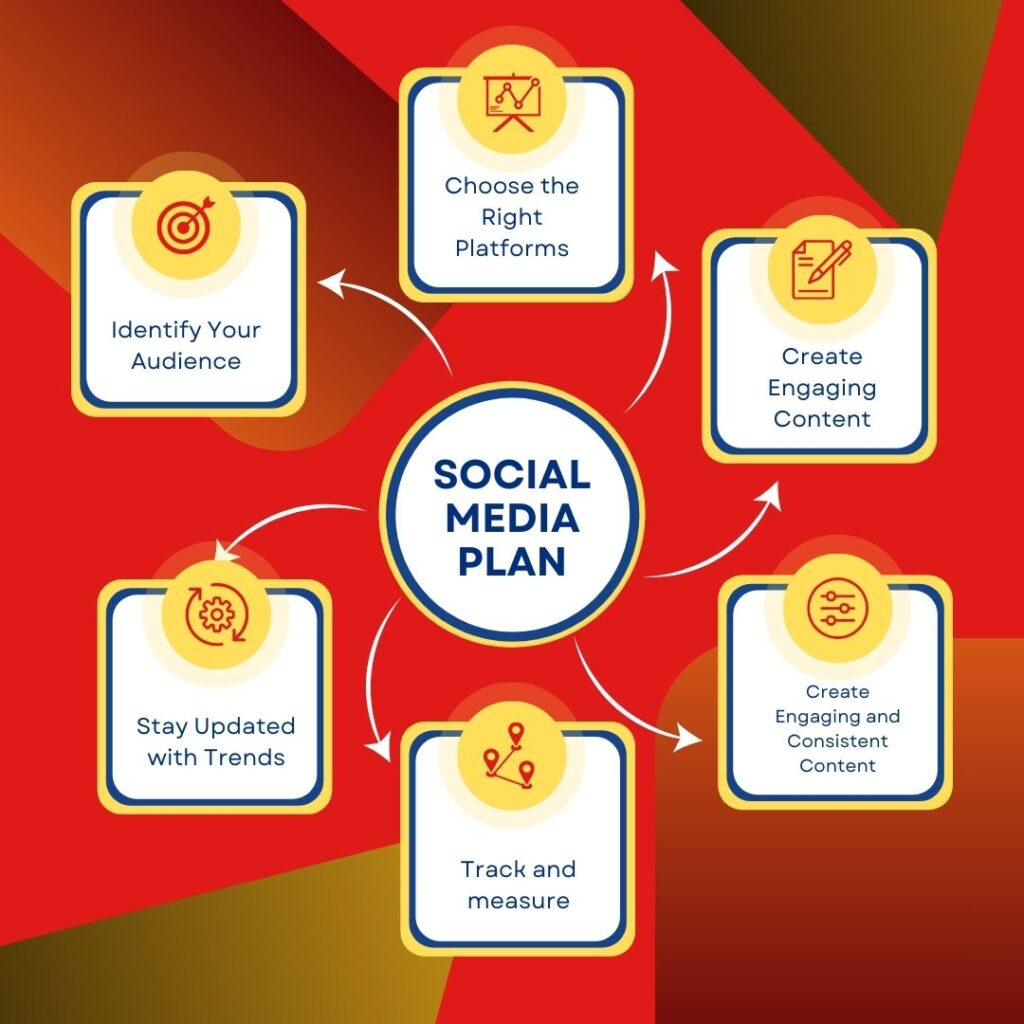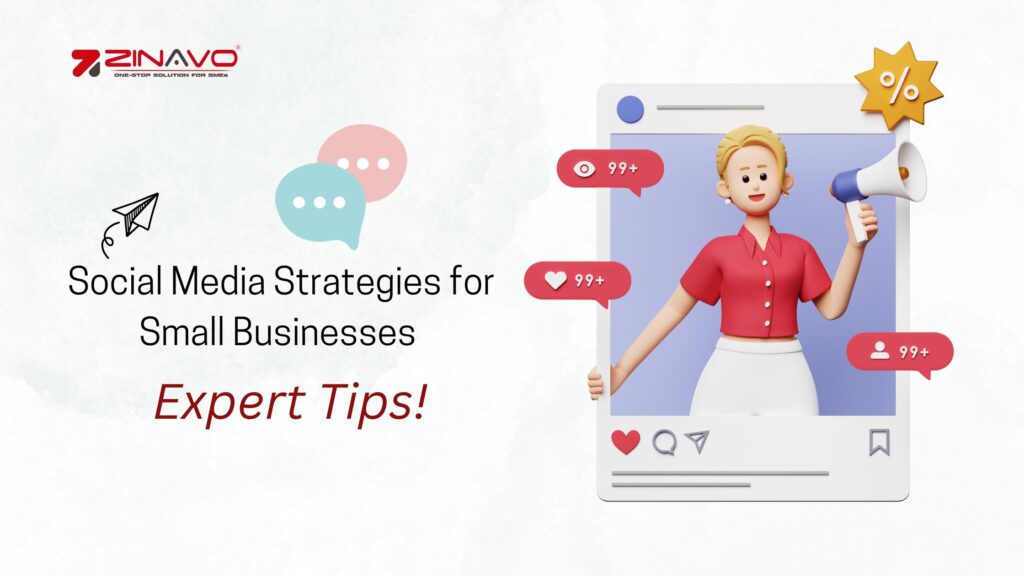Social Media Strategies for Small Businesses: Expert Tips 2025
Introduction
Social media has evolved from a simple social media platform into a powerful marketing tool. Small businesses can effectively utilize social media to boost their online presence, engage with potential customers, and ultimately grow their business. A strategic approach is necessary for social media marketing to be successful. If you’re a small business owner looking to utilize the power of social media, here are expert tips to guide you through the process.
1. Identify Your Audience
Before diving into social media marketing, it’s crucial to define who is your target audience. Understanding your customers’ demographics, interests, and pain points will help you tailor your content and marketing efforts. Consider factors such as:
Age: What age group is most likely to engage with your brand?
Location: Are your customers local, national, or international?
Interests: What type of audience do you want to reach?
Pain Points: What problems are they looking to solve that your business can address?
By understanding these aspects, you can ensure your content resonates with the right people, making it easier to convert them into loyal customers.
2. Choose the Right Platforms
Not all social media platforms are created equal. Each platform has its own strengths, audience, and style of content. As a small business, it’s important to select platforms where your target audience is most active and where your business fits best. A quick breakdown of the most popular platforms is as follows:
Facebook: Great for reaching a broad audience, especially for businesses with a local presence. Facebook allows you to create targeted ads and has robust analytics tools.
Instagram: A great option for businesses offering visual products or services. Instagram’s features like Stories, Reels, and shopping capabilities can drive direct sales.
Twitter: Best for real-time updates and conversations. If your business is focused on news, trends, or customer service, Twitter is a great fit.
LinkedIn: Perfect for B2B marketing. If you’re targeting professionals or other businesses, LinkedIn is the ideal platform for networking and establishing authority.
Choose the platforms where your customers are most active, and focus your efforts there.
3. Create Engaging and Consistent Content
Content is the backbone of social media marketing. However, it’s not just about posting content for the sake of it. Your posts need to engage your audience and provide value. Here are some ideas for engaging your followers:
- Educational Content: Provide tips, tutorials, and blog posts that inform your audience about your industry or products.
- Behind-the-Scenes: Give followers a sneak peek into your business operations. Show them how products are made, how your team works, or the story behind your brand.
- User-Generated Content: Get your customers to share their experiences with your products or services. Sharing their content not only promotes authenticity but also helps build trust.
- Customer Testimonials and Reviews: Social proof is powerful. Showcase satisfied customers and positive reviews to build credibility.
- Interactive Content: Polls, quizzes, and contests are a fun way to engage with your audience and encourage participation.
Consistency is key to social media marketing. Create a content calendar to ensure regular posting, and experiment with the timing of your posts to determine when your audience is most active.
4. Utilize Social Media Ads
While organic reach is important, social media advertising can accelerate the growth of your business. Most social media platforms offer powerful ad tools that allow you to target your audience with precision. You can set parameters such as age, location, interests, and behaviors to ensure your ads reach the right people. Some popular ad types include:
Facebook and Instagram Ads: These platforms allow you to run photo, video, carousel, and story ads, all of which can be highly engaging.
Twitter Ads: You can promote your tweets to reach a larger audience and drive traffic to your website.
LinkedIn Ads: Ideal for B2B businesses, LinkedIn offers options like sponsored content and InMail ads that target professionals.
When running ads, track your campaigns’ performance and adjust them based on data. If you want to increase traffic, generate leads, or boost sales, you need to set clear goals.

5. Engage with Your Audience
Social media is not a one-way communication channel. Maintain a regular dialogue with your audience. Respond to comments, messages, and mentions promptly. Show appreciation for positive feedback and address any concerns or negative feedback professionally. Engaging your followers fosters brand loyalty and builds relationships.
Consider running live sessions or Q&A to connect with your audience in real-time. Hosting live events allows you to answer questions, showcase your expertise, and connect with your audience on a personal level.
6. Leverage Influencer Marketing
Influencer marketing is an excellent way for small businesses to boost their visibility and credibility without a large marketing budget. Partnering with influencers who align with your brand can help you reach a wider audience and build trust quickly. Choose influencers who have a genuine connection with their followers and whose values match yours.
Influencers can create content that promotes your products, services, or brand in an authentic way, which often leads to higher engagement and conversions.
7. Analyse and Optimize Performance
To ensure your social media efforts are working off, you must track your performance regularly. Use the built-in analytics tools on social platforms like Facebook Insights, Instagram Analytics, or Twitter Analytics to monitor metrics such as:
- Engagement Rate: The number of likes and comments you receive on your posts.
- Reach and Impressions: How many people see your posts.
- Click-Through Rate (CTR): How many people click on your link or advertisement.
- Conversions: The number of actions taken, such as purchases or registrations.
By analysing these metrics, you can refine your strategy and create content that resonates more with your audience.
8. Stay Updated with Trends
Social media trends change rapidly. Keep up with the latest features, trends, and best practices on each platform. For example, Instagram Stories have created new opportunities for businesses to engage with younger audiences. Keeping an eye on trends allows your business to remain relevant and take advantage of new opportunities.
Conclusion
Social media marketing is a powerful tool for small businesses to expand their reach and grow their brand. By identifying your target audience, choosing the right platforms, creating engaging content, utilizing paid ads, and staying connected with your audience, you can build a strong social media presence. Regularly analyse your performance and adjust your strategy based on data, and you’ll soon see the positive impact on your business. The key is consistency, creativity, and being adaptable to the ever-evolving social media landscape.
By following these expert tips, your small business can succeed in the competitive social media space and drive significant growth.



